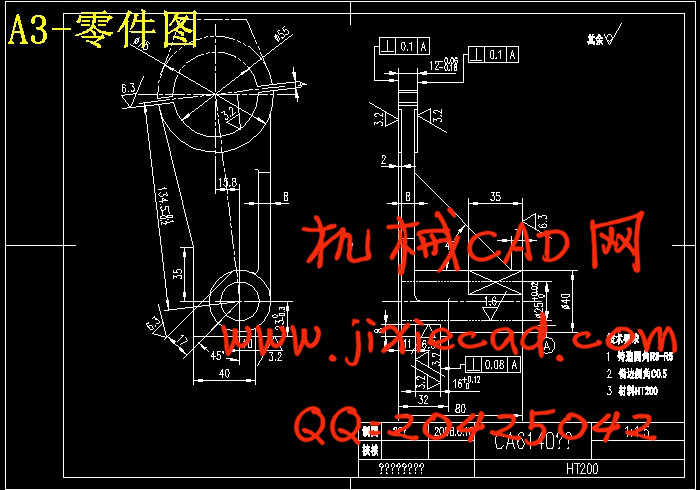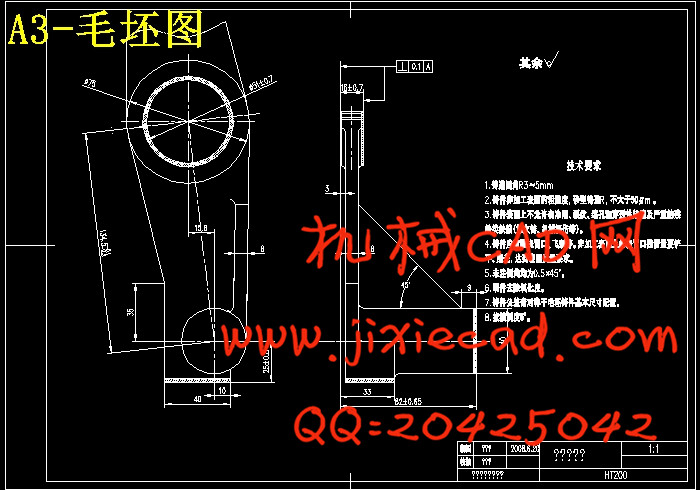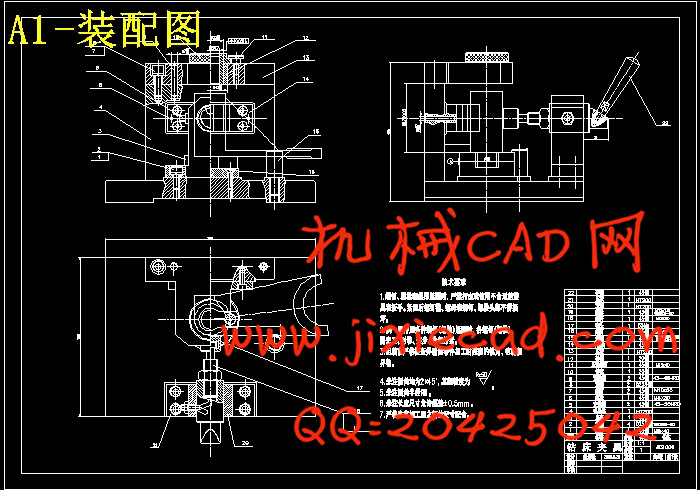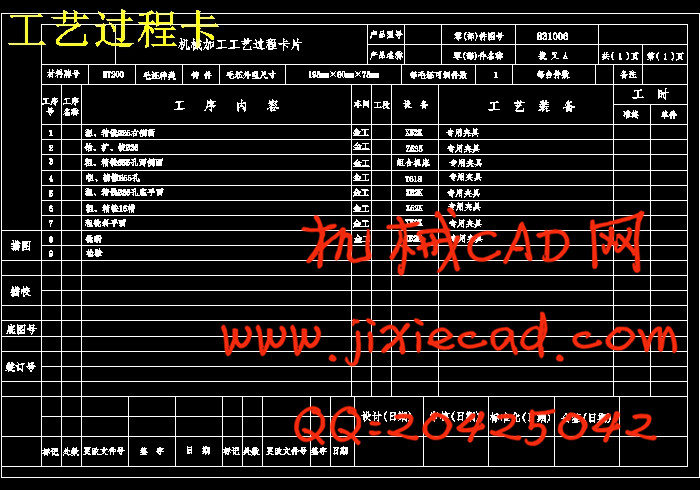设计简介
课程设计任务书
一、设计题目CA6140拨叉加工工艺设计及加工Φ25孔的夹具设计。
二、原始资料
(1) 被加工零件的零件图 1张
(2) 生产类型:大批生产
三、上交材料
(1) 被加工工件的零件图 1张
(2) 工件的毛坯图 1张
(3) 机械加工工艺过程卡片 1张
(4) 与所设计夹具对应那道工序的工序卡片 1张
(5) 夹具装配图 1张
(6) 夹具体图 1张
(7) 课程设计说明书(6000~8000字) 1份
说明书主要包括以下内容(章节)
①目录
②摘要(中外文对照的,各占一页)
③零件工艺性分析
④机械加工工艺规程设计
⑤指定工序的专用机床夹具设计
⑥方案综合评价与结论
⑦体会与展望
⑧参考文献
列出参考文献(包括书、期刊、报告等,10条以上)
课程设计说明书一律用A4纸、纵向打印.
四、进度安排(参考)
(1) 熟悉零件,画零件图 2天
(2) 选择工艺方案,确定工艺路线,填写工艺过程综合卡片 5天
(3) 工艺装备设计(画夹具装配图及夹具体图) 9天
(4) 编写说明书 3天
(5) 准备及答辩 2天
摘 要
这次设计的是CA6140车床(831006)拨叉,包括零件图、毛坯图、装配图各一张,机械加工工艺过程卡片和与工序卡片各一张。首先我们要熟悉零件和了解其作用,它位于车床变速机构中,主要起换档作用。然后,根据零件的性质和零件图上各端面的粗糙度确定毛坯的尺寸和械加工余量。最后拟定拨差的工艺路线图,制定该工件的夹紧方案,画出夹具装配图。
就我个人而言,我希望能通过这次课程设计,了解并认识一般机器零件的生产工艺过程,巩固和加深已学过的技术基础课和专业课的知识,理论联系实际,从中锻炼自己分析问题、解决问题的能力,为今后的工作打下一个良好的基础,并且为后续课程的学习打好基础。
Abstract
This time I design the lathes of the shift forks CA6140(831006), including that the part pursuing , the blank pursues , assembling pursues , the machine work procedure card the working procedure card every sheet .We should know the part very well and know its effect first , it is worked in the organization which is used for change the speed in a lathe, and the mainly role of the part is alter the speed. Then, we design the dimension of the blank and instrument process a margin of the part according to part character and the harshness of each face .Finally, I design the handicrafts route picture of the shift forks, work out the fastening motion scheme being workpiece's turn , draw up clamp assembling picture.
As far as my individual be concerned, I want to knowing the general productive technology of machine part , consolidating and deepening the knowledge of basic course and specialized course what I have already learned , integrates theory with practice, and improve the
ability to solve problems, what’s more , striking the basis for the future work and the following course’s studying .
目 录
一、零件的工艺分析及生产类型的确定... 1
1.1、零件的用途... 1
1.2、分析零件的技术要求... 1
1.3、审查拨叉的工艺性... 2
1.3.1、以φ25为中心的加工表面. 2
1.4、确定拨叉的生产类型... 2
二、确定毛坯... 2
三、工艺规程设计... 3
3.1.1粗基准的选择. 3
3.1.2精基准的选择. 3
3.2.2.工艺路线方案二. 4
3.3、机械加工余量、工序尺寸及毛皮尺寸的确定... 5
3.3.1.毛坯余量及尺寸的确定. 5
3.4、各加工表面的机械加工余量,工序尺寸及毛坏尺寸的确定 6
3.4.1钻φ25的孔加工余量及公差. 6
3.4.2铣φ55的叉口及上、下端面. 8
3.4.3粗铣35×3的上端面. 8
3.4.4粗铣40×16的上表面. 8
3.4.5铣40×16的槽. 8
3.4.6切断φ55叉口. 9
3.5、确立切削用量及基本工时... 9
3.5.1工序Ⅰ: 钻、扩、粗铰、精铰Φ25孔. 9
3.5.2.工序Ⅱ:铣φ55的叉口的上、下端面. 11
3.5.3.工序Ⅲ铣φ55的叉口. 12
3.5.4.工序Ⅳ:铣35×3的上端面. 12
3.5.5工序Ⅴ:铣40×16槽的表面. 13
3.5.6.工序Ⅵ铣40×16的槽. 13
3.5.7工序Ⅶ:切断φ55叉口. 14
3.5.8.工序Ⅷ:检验. 14
四、 夹具设计... 15
4.1.提出问题... 15
4.2.设计思想... 16
4.3、夹具设计... 16
4.3.1、定位分析. 16
4.3.2、切削力及夹紧力的计算…………………………16
4.3.3、夹具操作说明. 18
五.体会与展望... 19
六.参考文献... 20








